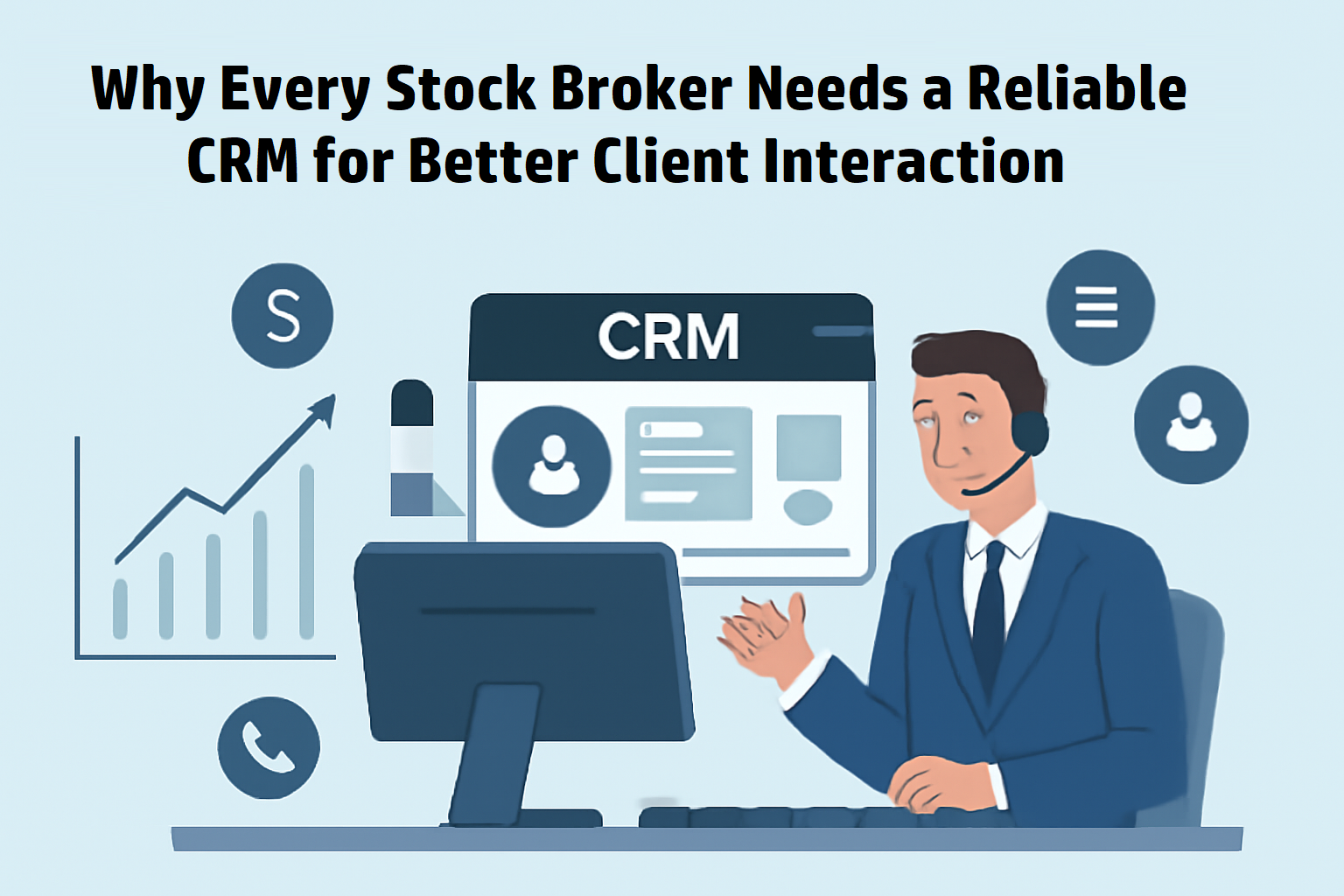Boosting Small Business Success with CRM: A Game-Changer for Entrepreneurs

Running a small business is no small feat. Entrepreneurs wear multiple hats daily, juggling everything from marketing and sales to customer service and operations. In this fast-paced environment, efficiency and organization are critical to success. Enter Customer Relationship Management (CRM) systems—a powerful tool that can revolutionize the way small businesses operate. This blog explores how adopting a free CRM can positively impact your business, streamlining processes, enhancing customer relationships, and ultimately driving growth.
The Backbone of Your Business: What is CRM?
A CRM system is a software solution designed to manage and analyze customer interactions and data throughout the customer lifecycle. It centralizes information from various departments—such as sales, marketing, and customer service—into a single platform. This allows small businesses to track interactions, manage customer information, and optimize processes, leading to more informed decisions and better customer experiences.
For small businesses, a CRM system is not just a tool; it’s the backbone that supports growth and scalability. By offering a unified view of customers and prospects, CRM helps businesses understand their customers better, tailor their services, and maintain lasting relationships.
Why Small Businesses Need CRM
- Centralized Data Management
- In small businesses, data can quickly become fragmented, especially when different teams handle it separately. CRM systems centralize data, ensuring that everyone in the organization has access to the same information. This not only improves communication but also reduces errors and redundancy.
- Enhanced Customer Relationships
- Customer satisfaction is the cornerstone of business success. CRM systems allow businesses to personalize their interactions with customers, track their preferences, and anticipate their needs. This leads to stronger relationships, higher customer retention, and increased loyalty.
- Improved Sales Efficiency
- CRM systems streamline the sales process by providing sales teams with tools to manage leads, track customer interactions, and automate repetitive tasks. This enables sales teams to focus on closing deals and building relationships rather than getting bogged down by administrative work.
- Data-Driven Decision Making
- With all customer data in one place, small businesses can easily analyze trends and make informed decisions. CRM systems offer reporting and analytics features that provide insights into customer behavior, sales performance, and market trends. This data-driven approach allows businesses to adapt quickly and stay ahead of the competition.
- Scalability and Growth
- As a small business grows, so does its customer base and the complexity of its operations. CRM systems are designed to scale with your business, offering additional features and integrations as needed. This scalability ensures that your CRM system remains a valuable asset as your business expands.
- Time and Cost Savings
- Automation is a key feature of CRM systems. By automating routine tasks, such as data entry, follow-up emails, and reporting, businesses can save time and reduce operational costs. This efficiency allows small businesses to allocate resources to more strategic activities that drive growth.
Visit https://www.trustpilot.com/review/fridaycrm.com
Implementing CRM: A Step-by-Step Guide for Small Businesses
Adopting a CRM system might seem daunting, especially for small businesses with limited resources. However, with careful planning and execution, the transition can be smooth and highly beneficial.
- Identify Your Needs
- Start by assessing your business needs and goals. What challenges are you currently facing in managing customer relationships? What processes need improvement? Understanding your needs will help you choose the right CRM system and features.
- Choose the Right CRM
- There are various CRM solutions available, each with its own set of features and pricing models. Consider factors such as ease of use, scalability, and integration with existing tools when selecting a CRM. It’s important to choose a solution that aligns with your business goals and can grow with your business.
- Plan the Implementation
- Implementing a CRM system requires a strategic plan. Define the scope of the implementation, set clear objectives, and assign responsibilities to team members. Ensure that everyone involved understands the goals and benefits of the CRM system.
- Data Migration
- If you’re transitioning from another system, data migration is a critical step. Cleanse your data to ensure accuracy and consistency before importing it into the new CRM system. This will help avoid issues later on and ensure that your CRM starts with clean, organized data.
- Training and Adoption
- A CRM system is only effective if your team knows how to use it. Provide comprehensive training to ensure that all users are comfortable with the new system. Encourage adoption by demonstrating how the CRM will make their jobs easier and more efficient.
- Monitor and Optimize
- After implementation, regularly monitor the CRM system’s performance and gather feedback from users. Use this information to make adjustments and optimize the system for better results. Continuous improvement will help you maximize the value of your CRM investment.
Real-Life Impact: How CRM Transforms Small Businesses
- Streamlining Sales Processes
- Imagine a small business owner who previously managed sales leads through spreadsheets and sticky notes. After implementing a CRM system, they can now track every lead, automate follow-ups, and gain insights into which sales strategies work best. This streamlined process leads to higher conversion rates and increased revenue.
- Personalized Customer Service
- A local boutique might struggle to remember each customer’s preferences and past purchases. With a CRM system, they can easily access this information, allowing them to offer personalized recommendations and services. This personal touch not only delights customers but also encourages repeat business.
- Efficient Marketing Campaigns
- Small businesses often operate on tight marketing budgets. A CRM system enables them to segment their customer base and target specific groups with tailored campaigns. This targeted approach increases the effectiveness of marketing efforts, leading to higher engagement and better returns on investment.
- Stronger Team Collaboration
- In a small business, team collaboration is essential for success. CRM systems provide a shared platform where team members can access the same information, communicate effectively, and work together towards common goals. This collaborative environment fosters innovation and improves overall productivity.
The Future of Small Businesses with CRM
As technology continues to evolve, the role of CRM in small businesses will only become more significant. Future CRM systems are expected to incorporate advanced features such as artificial intelligence, machine learning, and predictive analytics. These innovations will enable small businesses to anticipate customer needs, automate even more tasks, and make smarter decisions faster.
Moreover, the integration of CRM with other business tools—such as e-commerce platforms, social media, and customer support systems—will create a seamless ecosystem where all aspects of the business are interconnected. This holistic approach will further enhance efficiency and provide a more comprehensive understanding of customers.
Conclusion: Embrace CRM for Sustainable Growth
In today’s competitive business landscape, small businesses cannot afford to overlook the importance of CRM systems. By centralizing data, enhancing customer relationships, improving sales efficiency, and enabling data-driven decisions, CRM systems empower small businesses to achieve sustainable growth.
The journey to CRM adoption may require time and resources, but the benefits far outweigh the challenges. With the right CRM system in place, small businesses can streamline their operations, build stronger customer relationships, and position themselves for long-term success. Embrace CRM as a vital tool in your business arsenal and watch as it transforms the way you operate, helping you achieve your goals and reach new heights.



